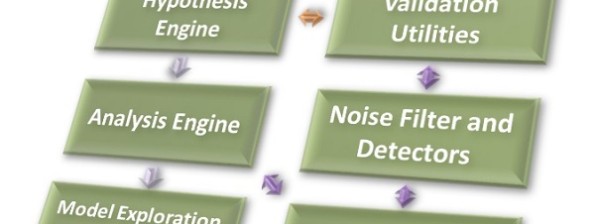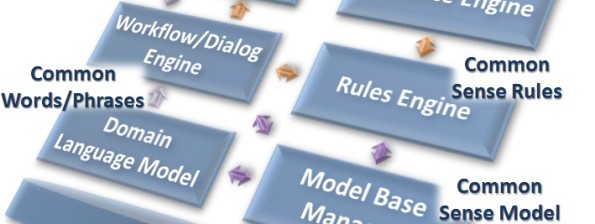Category Archives: Expert Systems
06 Aug Data Convergence at Velocity

Joe Roushar – August 2015 Knowledge workers in all types of organizations need information in internal (to the organization) databases, intranet sites and documents, as well as information in external databases, web pages and documents. The promise of data convergence includes the lofty goal of providing, from a single request, structured and unstructured information from both internal […]
11 May Thinking in Parallel

A Parallel Expert I once rode the Trans-Siberian Railway from Moscow to Ulan-Batar, Mongolia (not the picture at right – the engines were diesel). Several times along the journey we passed slower trains, and we were passed by faster ones. When people and freight are confined to a single lane, the speed of the slowest defines the speed of […]
23 Feb Inference in Knowledge Apps

In Section 5 we discussed different kinds of knowledge, including existential or hierarchical knowledge and causal knowledge. In Section 7 we discussed modeling approaches and search techniques that could be applied to any kind of knowledge. We saw that causal knowledge can be modeled as chains of causes and effects, and that existential knowledge can be […]
08 Feb Just In Time Knowledge

One of the beautiful things about the human brain is it’s adaptability: people can “change” their minds at the last minute based on the changing situation (context). This is not trivial, but I believe that it is one of the characteristics of human cognition that is relatively straightforward to mimic in computer programs and apps. In […]
14 Jan Segregating Layers of Intelligence

Layered Architectures Layers appear regularly in my blog, whether it’s layers of the brain, layers of processing nodes in artificial neural networks or layers in systems architectures. Layering embodies important patterns in the inexorable move toward a knowledge economy with knowledge systems. In today’s post, I’m going to talk about what layering brings to enterprise […]
07 Jan What’s in a Decision

A decision by any other name would feel as risky Take any class of software and you can find some structures or processes that you can associate back to some human-like structure or processes. To keep this more simple and relevant, I am focused on looking at systems that are fundamentally designed to replicate more […]
29 Dec Unhuman Expertise

Artificial Intelligence has suffered from a persistent scale problem: up to now, many techniques have been shown to work well and reliably in narrowly defined domains, but outside the domains of their expertise, they fall apart very quickly. No techniques of which I am aware, have exhibited common sense in the way we expect humans […]
17 Dec Visualizing Knowledge

Visualizing Knowledge – Automatic Generation Words are so symbolic that even symbolic thinkers, like me, understand more when there’s a picture to go along with the words. is partly explains my crazy use of images in this blog. The various forms of graphical representations are superb inventions that enable us to view and understand mathematical data […]
10 Dec Measuring Knowledge

Sometimes you need to know about your knowledge. When you’re in the middle of trying to build a system that knows stuff, you may ask, how much does the system know after this training or learning cycle as a percent of the total knowable amount? When we test students in their learning cycles, we use a […]





